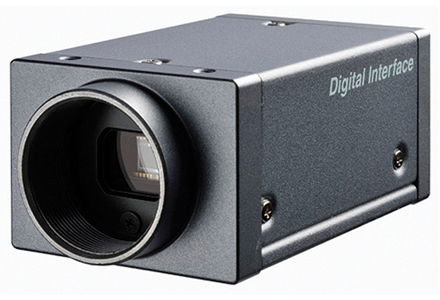High-speed video cameras for ITS applications developed by Sony Image Sensing Solutions have been adopted by system integrator Horus to create a pothole identification system capable of detecting potholes at speeds of up to 130 kph (80 mph).
The vision-based pothole detection system integrates six high-speed Sony ITS camera modules, each taking 15 high-resolution frames per second to form a 360-degree imaging system which accurately records data from up to three lanes simultaneously, even when travelling

Sony high speed networked ITS cameras
High-speed video cameras for ITS applications developed by 576 Sony 5853 Image Sensing Solutions have been adopted by system integrator 7541 Horus to create a pothole identification system capable of detecting potholes at speeds of up to 130 kph (80 mph).
The vision-based pothole detection system integrates six high-speed Sony ITS camera modules, each taking 15 high-resolution frames per second to form a 360-degree imaging system which accurately records data from up to three lanes simultaneously, even when travelling at high speed. Images are combined with GPS data and processed by an on-board CPU.
Video from the system can then be transferred to the councils' computers and analysed using a bespoke media player with integrated mapping functionality, speeding the detection of potholes and allowing councils to make earlier, less costly repairs.
"The longer you leave a pothole, the more it costs to repair," said Dirk Aalbers of Horus. "By recording at such high speeds, we can now monitor the main routes on a weekly basis, especially during the winter months when damage happens quickly."
Stéphane Clauss of Sony's Image Sensing Solutions division said: "Like many ITS applications, the Horus pothole detection system requires a high speed sensor, exceptional image clarity, and the ability to work in a range of light levels and that can cope with harsh environmental conditions."
The vision-based pothole detection system integrates six high-speed Sony ITS camera modules, each taking 15 high-resolution frames per second to form a 360-degree imaging system which accurately records data from up to three lanes simultaneously, even when travelling at high speed. Images are combined with GPS data and processed by an on-board CPU.
Video from the system can then be transferred to the councils' computers and analysed using a bespoke media player with integrated mapping functionality, speeding the detection of potholes and allowing councils to make earlier, less costly repairs.
"The longer you leave a pothole, the more it costs to repair," said Dirk Aalbers of Horus. "By recording at such high speeds, we can now monitor the main routes on a weekly basis, especially during the winter months when damage happens quickly."
Stéphane Clauss of Sony's Image Sensing Solutions division said: "Like many ITS applications, the Horus pothole detection system requires a high speed sensor, exceptional image clarity, and the ability to work in a range of light levels and that can cope with harsh environmental conditions."










